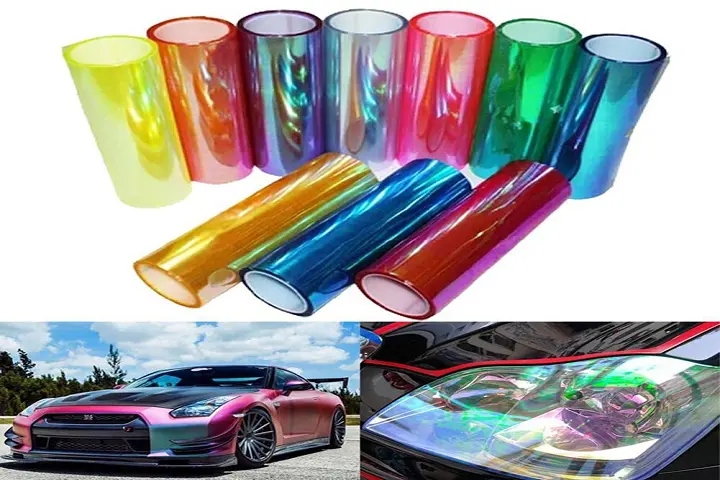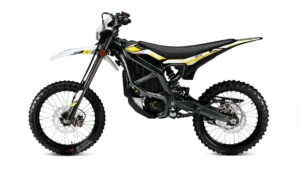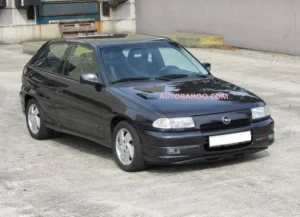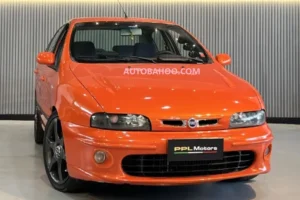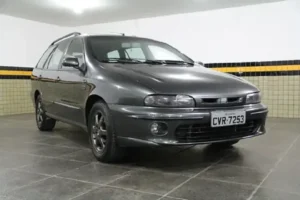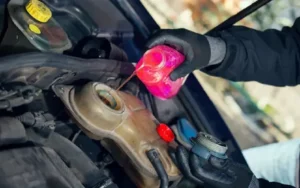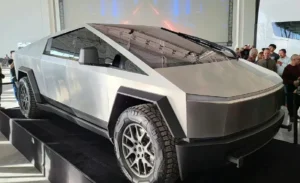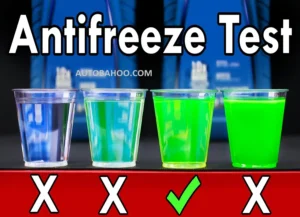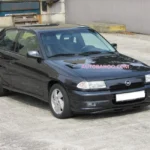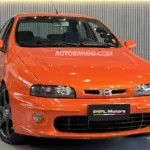In the world of automotive customization, few options offer as much versatility and value as vinyl wraps. Whether you’re looking to refresh your vehicle‘s appearance, protect its original paint or make a bold statement on the road a car wrap might be the perfect solution.
This comprehensive guide will explore everything you need to know about finding affordable and premium quality vinyl wraps near you, helping you navigate the exciting world of vehicle wraps with confidence.
Understanding Affordable Car Wrap: More Than Just a Pretty Face
At its core, a vinyl wrap is a thin, flexible film applied directly to your car‘s exterior. But don’t let its simplicity fool you these wraps are technological marvels, engineered to withstand the rigors of daily driving while providing a stunning visual transformation.
The Science Behind the Style
Vinyl films used in car wrapping are typically made from polyvinyl chloride (PVC) or similar polymers. These materials offer:
- Durability against UV rays and environmental contaminants
- Flexibility to conform to complex vehicle contours
- Removability without damaging the original paint
Modern vinyl wraps come in an astounding array of colors, finishes and textures. From glossy metallics to matte blacks, and even color-shifting chameleon effects, the possibilities are nearly endless.
The composition of these films is a marvel of materials science. Multiple layers work together to create a product that’s both durable and malleable:
- Adhesive Layer: A pressure-sensitive adhesive that bonds the wrap to the vehicle’s surface.
- Color Layer: Contains the pigments and special effects that give the wrap its appearance.
- Clear Coat: Protects the color layer and provides the final finish (glossy, matte, etc.).
- Air Release Channels: Microscopic grooves that allow air to escape during installation, preventing bubbles.
“A well-applied vinyl wrap can completely transform a vehicle’s appearance, often fooling even seasoned car enthusiasts into thinking it’s a custom paint job.” John Smith, Master Installer at RAXTiFY
The technology behind these wraps is constantly evolving. Recent advancements include:
- Self-healing films that can repair minor scratches with heat application
- Nano-ceramic coatings integrated into the wrap for enhanced protection
- Temperature-sensitive color-changing wraps for a truly dynamic appearance
Vinyl Wrap Options: Tailoring Your Transformation
When it comes to wrap options, you’re not limited to an all-or-nothing approach. Let’s break down the main categories:
Full Vehicle Wraps
A full car wrap covers every painted surface of your vehicle, offering:
- Complete color changes
- Protection for the entire paint job
- Maximum visual impact
Full wraps are ideal for those looking to:
- Dramatically alter their vehicle’s appearance
- Preserve the original paint for resale value
- Create a cohesive look for show cars or race vehicles
Partial Wraps
Partial wraps allow for more targeted customization:
- Accent specific areas like hoods, roofs, or mirrors
- Create two-tone effects
- Ideal for those on a tighter budget
Popular partial wrap options include:
- Hood wraps: Draw attention to the vehicle’s front
- Roof wraps: Create a two-tone effect or add a carbon fiber look
- Mirror wraps: Add a sporty touch with contrasting colors
- Pillar wraps: Enhance the vehicle’s profile with blacked-out pillars
Commercial Wraps
For businesses, vehicle wraps serve as mobile billboards:
- Turn company vehicles into rolling advertisements
- Maintain consistent branding across fleets
- Easily updatable for seasonal promotions or rebranding
Commercial wraps can include:
- Full graphic designs with company logos and contact information
- QR codes for easy digital engagement
- Reflective elements for increased visibility at night
| Wrap Type | Coverage | Typical Cost Range | Best For |
| Full Wrap | 100% | $2,000 – $5,000+ | Complete transformations |
| Partial Wrap | 25% – 75% | $500 – $2,000 | Accents and budget-conscious buyers |
| Commercial Wrap | Varies | $1,500 – $3,000+ | Businesses and fleet vehicles |
The Benefits of Vinyl Wraps: More Than Meets the Eye
Choosing a vinyl wrap for your car offers advantages that go beyond aesthetics:
- Paint Protection: Acts as a sacrificial barrier against stone chips and minor scratches
- Resale Value Preservation: Easily removable, allowing you to return the vehicle to its original color
- Customization on Demand: Change your car’s look as often as you like without permanent alterations
- Cost-Effective: Generally less expensive than a high-quality paint job
- Temporary Options: Ideal for leased vehicles or short-term promotional needs
Let’s delve deeper into these benefits:
Paint Protection
A vinyl wrap acts as a protective shield for your vehicle’s original paint. This barrier helps prevent:
- Rock chips and road debris damage
- Fading from UV exposure
- Mild chemical etching from acid rain or bird droppings
Many car owners find that wrapping a new vehicle immediately after purchase helps maintain its pristine condition, potentially increasing resale value down the line.
Resale Value Preservation
Unlike a custom paint job, a vinyl wrap can be removed without affecting the original paint. This is particularly valuable for:
- Collectors of rare or classic cars
- Lease holders who need to return the vehicle to stock condition
- Those who frequently change vehicles and want to maximize resale value
Customization on Demand
The temporary nature of vinyl wraps opens up a world of possibilities:
- Seasonal color changes (e.g., festive wraps for holidays)
- Trying bold designs without long-term commitment
- Updating commercial vehicles for specific campaigns or events
Cost-Effective Makeovers
Compared to a professional paint job, vinyl wraps often come out ahead in terms of cost:
| Modification | Average Cost | Durability | Reversibility |
| Vinyl Wrap | $2,000 – $5,000 | 5-7 years | Yes |
| Custom Paint | $3,000 – $10,000+ | 10-15 years | No |
While paint may last longer, the flexibility and lower initial cost of wraps make them an attractive option for many.
Ideal for Leased Vehicles
Leased vehicle holders often face restrictions on modifications. Vinyl wraps offer a solution:
- Non-permanent alteration that can be removed before lease-end
- Protects the original paint, potentially avoiding wear-and-tear charges
- Allows for personalization without violating lease terms
Finding Quality Wrap Services Near You: Your Local RAXTiFY Connection
When searching for “vinyl wraps near me,” it’s crucial to find a reputable provider. Here’s how to ensure you’re getting premium quality service:
- Research Local Providers:
- Look for established shops with a strong online presence
- Check if they have an online store for browsing wrap materials
- Verify their affiliation with reputable brands like RAXTiFY
- Read Customer Reviews:
- Look beyond star ratings to read detailed experiences
- Pay attention to comments about durability and customer service
- Check Portfolios and Certifications:
- A quality installer should have a gallery of completed projects
- Look for industry certifications or training from major vinyl manufacturers
- Request Consultations:
- Reputable shops will offer free consultations to discuss your project
- Use this time to ask about their process and materials
When evaluating potential installers, consider the following:
- Experience: How long have they been in business? Look for shops with a proven track record.
- Facility: A clean, well-equipped installation space is crucial for quality results.
- Warranty: What kind of guarantee do they offer on their work?
- Materials: Do they use premium vinyl brands known for quality and durability?
“At RAXTiFY, we believe in educating our customers. An informed client makes better decisions and appreciates the craftsmanship that goes into every wrap.” – Sarah Johnson, RAXTiFY Customer Relations Manager
The Wrap Process Explained: From Concept to Completion
Understanding the steps involved in applying a vinyl wrap can help you appreciate the craftsmanship involved:
- Initial Consultation and Design:
- Discuss your vision and budget
- Choose colors, finishes, and patterns
- For custom designs, work with a graphic designer
- Vehicle Prep and Cleaning:
- Thorough washing and degreasing
- Removal of badges, trim, and other obstacles
- Paint correction if necessary
- Application Techniques:
- Precise cutting of vinyl sheets
- Careful application to avoid bubbles and wrinkles
- Heat-stretching around curves and contours
- Post-Wrap Care and Maintenance:
- Allow for proper curing time (usually 24-48 hours)
- Receive care instructions for long-term maintenance
Let’s break down each of these stages in more detail:
Initial Consultation and Design
This crucial first step sets the tone for your entire project. A good installer will:
- Listen to your ideas and offer professional advice
- Show you samples of different vinyl types and finishes
- Use computer rendering software to preview designs on your specific vehicle model
- Provide a detailed quote and timeline for the project
Vehicle Prep and Cleaning
Proper preparation is key to a long-lasting, high-quality wrap. This stage includes:
- Clay bar treatment to remove contaminants embedded in the paint
- Repair of any paint chips or deep scratches
- Thorough cleaning with isopropyl alcohol to ensure a pristine surface
- Disassembly of removable parts like headlights, taillights, and door handles for a seamless wrap
Application Techniques
The application process is where skill and experience truly shine. Professional installers use techniques such as:
- Dry application: Applying the vinyl without any lubricant, relying on air release channels in the adhesive
- Wet application: Using a soap solution for initial positioning, then squeegeeing out the liquid
- Heat forming: Using heat guns to stretch the vinyl around complex curves without creating wrinkles or bubbles
- Precision cutting: Trimming excess material with specialized tools to create clean, invisible seams
Post-Wrap Care and Maintenance
After installation, proper care is essential:
- Avoid washing or applying any products to the wrap for at least 7 days
- Hand wash only, using pH-neutral car shampoos
- Avoid automated car washes with brushes
- Apply a vinyl-safe sealant every few months to maintain the finish
Vinyl Wraps for Different Vehicle Types: One Size Does Not Fit All
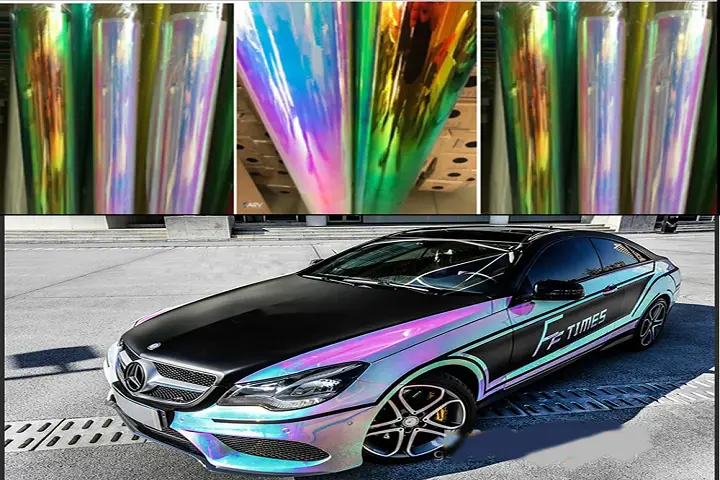
The complexity and cost of a wrap can vary significantly depending on your vehicle type:
- Cars (Sedans, Coupes, Hatchbacks):
- Generally the most straightforward to wrap
- Smooth surfaces and simple curves
- Popular for full color changes and racing stripes
- SUVs and Crossovers:
- Larger surface area increases material and labor costs
- Complex body lines may require additional attention
- Often chosen for two-tone designs or roof accents
- Trucks and Vans:
- Flat surfaces are easy to wrap, but watch for corrugation on cargo areas
- Extended wheelbases on some models can significantly increase costs
- Popular for commercial branding and off-road themed designs
- Luxury and Exotic Vehicles:
- Intricate designs and aerodynamic features require expert handling
- Often benefit from paint protection film in addition to vinyl wraps
- Precision is crucial to maintain the vehicle’s high-end aesthetics
- Motorcycles and Specialty Vehicles:
- Require specialized techniques and often custom-cut vinyl pieces
- Can be more labor-intensive due to complex shapes
- Popular for creating unique, eye-catching designs
Each vehicle type presents its own challenges and opportunities:
Cars
Sedans and coupes are often the canvas for:
- Full color changes to emulate rare or expensive paint colors
- Racing stripes and sport-inspired graphics
- Subtle accents like blacked-out roofs or color-matched mirrors
SUVs and Crossovers
These larger vehicles allow for:
- Two-tone designs that play with the vehicle’s lines
- Roof wraps that contrast with the body color
- Textured wraps (like matte or brushed metal) on specific panels
Trucks and Vans
Commercial vehicles benefit from:
- Full-body advertising graphics
- Durable wraps that can withstand more rugged use
- Accent wraps on hoods and tailgates for a custom look
Luxury and Exotic Vehicles
High-end cars require:
- Meticulous attention to detail around complex body panels
- Often combine paint protection films with color or effect wraps
- Custom designs that enhance the vehicle’s premium aesthetics
Motorcycles and Specialty Vehicles
These unique projects allow for:
- Intricate designs that follow the contours of fairings and fuel tanks
- Combination of different finishes and textures
- Often include wrapping of small, complex parts like fenders and side panels
Cost Considerations: Budgeting for Your Wrap Project
While vinyl wraps are often more affordable than new paint jobs, costs can vary widely. Factors affecting pricing include:
- Vehicle size and complexity
- Wrap material quality and finish
- Design intricacy
- Labor rates in your area
To get the most value, consider:
- Comparing quotes from multiple providers
- Exploring different vinyl grades and finishes
- Opting for partial wraps if full coverage exceeds your budget
- Considering long-term value (e.g., paint protection, resale impact)
Let’s break down these cost factors:
Vehicle Size and Complexity
- Larger vehicles require more material and labor
- Complex curves and recesses increase installation time
- Removable parts (mirrors, handles, etc.) may incur additional labor costs
Wrap Material Quality
Vinyl wraps come in various grades:
- Calendar films: Less expensive, suitable for flat surfaces
- Cast films: Premium quality, conform better to curves and last longer
- Special effect films: (Chrome, color-shift) are typically the most expensive
Design Intricacy
- Simple, single-color wraps are the most economical
- Custom prints and complex designs increase costs
- Multi-layer designs with overlays or accents require more time and material
Labor Rates
- Vary by location and shop reputation
- Highly skilled installers command higher rates but often deliver superior results
To illustrate, here’s a rough cost breakdown for different wrap projects:
| Project Type | Vehicle | Estimated Cost Range |
| Full Wrap | Compact Car | $2,000 – $3,500 |
| Full Wrap | SUV | $3,500 – $5,000 |
| Partial Wrap | Hood + Roof | $500 – $1,500 |
| Commercial Wrap | Cargo Van | $3,000 – $5,000 |
| Custom Design | Sports Car | $4,000 – $7,000+ |
Remember, these are rough estimates and can vary significantly based on your specific project and location.
DIY vs. Professional Installation: Weighing Your Options
The allure of DIY car wrapping is strong, especially with the abundance of online tutorials. However, it’s crucial to understand the challenges:
DIY Pros:
- Potential cost savings
- Personal satisfaction
- Learning a new skill
DIY Cons:
- Steep learning curve
- Risk of costly mistakes
- Time-consuming for novices
- Limited access to professional-grade tools and materials
When to Definitely Choose Professional Installation:
- For full vehicle wraps
- When working with premium or delicate vehicles
- If you need a warranty on the installation
- When time is a factor
“We’ve seen many DIY attempts come through our doors for correction. While we admire the initiative, professional installation often saves money in the long run.” – Mike Chen, Lead Installer at RAXTiFY
If you’re considering the DIY route, be prepared for:
- Significant time investment (40-80 hours for a first-time full wrap)
- Purchasing specialized tools (heat gun, squeegees, cutting tools)
- Potentially wasting material due to mistakes
- Difficulty achieving a bubble-free, seamless finish
Professional installers bring several advantages:
- Years of experience and refined techniques
- Access to a clean, dust-free environment
- Professional-grade tools and equipment
- Knowledge of different vinyl types and their specific handling requirements
- Ability to handle unexpected challenges (e.g., paint imperfections, complex curves)
Trends in Vinyl Wrapping: Staying Ahead of the Curve
The world of automotive wraps is constantly evolving. Here are some current trends to consider:
- Color-Shifting and Textured Wraps:
- Chameleon films that change color depending on viewing angle
- Wraps mimicking carbon fiber, brushed metal, or even leather
- Matte and Satin Finishes:
- Subdued alternatives to traditional glossy paints
- Popular for luxury and performance vehicles
- Digital Printing Advancements:
- Custom designs with photorealistic quality
- Ability to replicate complex patterns and graphics
- Transparent Paint Protection Films:
- Often combined with color wraps for maximum protection
- Self-healing properties to minimize swirl marks and minor scratches
Environmental Impact: Wrapping with a Conscience
As environmental concerns grow, many car enthusiasts are considering the ecological impact of their customization choices:
- Eco-Friendly Wrap Options:
- Some manufacturers now offer PVC-free vinyl alternatives
- Water-based adhesives reduce harmful emissions
- Comparing Environmental Effects:
- Wraps eliminate the need for paint and associated solvents
- Removability means less waste compared to repainting
- Energy Efficiency:
- Light-colored wraps can reduce the need for air conditioning in hot climates
- Potential for slight improvements in aerodynamics with certain finishes
Legal Considerations: Staying on the Right Side of the Law
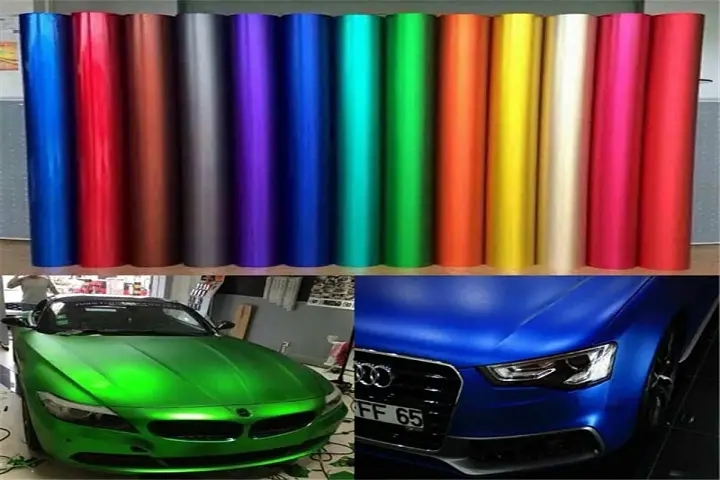
Before committing to a wrap, it’s essential to understand any legal implications:
- Local Regulations on Vehicle Modifications:
- Some jurisdictions have restrictions on reflective or color-shifting wraps
- Commercial vehicle wraps may be subject to specific advertising laws
- Insurance Implications:
- Inform your insurance provider about significant appearance changes
- Some policies may require additional coverage for custom wraps
- Documentation:
- Keep records of your vehicle’s original color and the wrap installation
- This can be helpful for insurance claims or if you sell the vehicle
FAQ: Affordable Car Wrap
How long does a vinyl wrap last?
With proper care, a high-quality vinyl wrap typically lasts 5-7 years, depending on environmental factors and usage patterns.
Can I wash my wrapped car?
Yes, but hand washing is recommended. Avoid high-pressure car washes and harsh chemicals. Use pH-neutral soap and soft cloths.
Will removing the wrap damage my paint?
When professionally installed and removed, vinyl wraps shouldn’t damage underlying paint. They often protect it from UV and scratches.
Can I wrap a leased vehicle?
Usually yes. Vinyl wraps are removable, making them ideal for leased vehicles. Always check your lease agreement first though.
How quickly can I get my car wrapped?
The process typically takes 3-5 days for a full wrap, including design, preparation, installation, and proper curing time.
Conclusion: Wrapping Up Your Vinyl Journey
Vinyl wraps offer an exciting and flexible way to customize your vehicle, protect its paint, and potentially even boost its resale value. With options ranging from subtle accents to full-body transformations, there’s a wrap solution for every taste and budget.
As you explore vinyl wrap options near you, remember these key points:
- Research thoroughly to find reputable installers like RAXTiFY
- Consider the long-term benefits beyond just aesthetics
- Choose materials and designs that align with your vehicle use and local regulations
- Don’t hesitate to ask questions and request detailed quotes
Whether you’re looking to refresh your daily driver, launch a mobile advertising campaign, or turn heads with a unique finish, the world of automotive wraps is ready to bring your vision to life.
Start your journey today by reaching out to local wrap specialists and discovering the transformative power of vinyl.

With over 5 years of dedicated experience in the automotive industry, I am passionate about all things automotive. My journey began with a deep curiosity for automobiles, which led me to delve deeper into their mechanics, technology and trends. My expertise spans various aspects of the automotive world, from the latest electric vehicles to classic car restoration techniques. Through my articles, I aim to share my knowledge and insights, helping readers stay informed and inspired in the fast-paced world of the automobile.
